The Home Office failed black Britons – the Windrush scandal is a ‘shameful stain’ on the nation
On the anniversary of campaigner Hubert Howard’s death, a tale of two men highlights the unlawful treatment of a whole generation

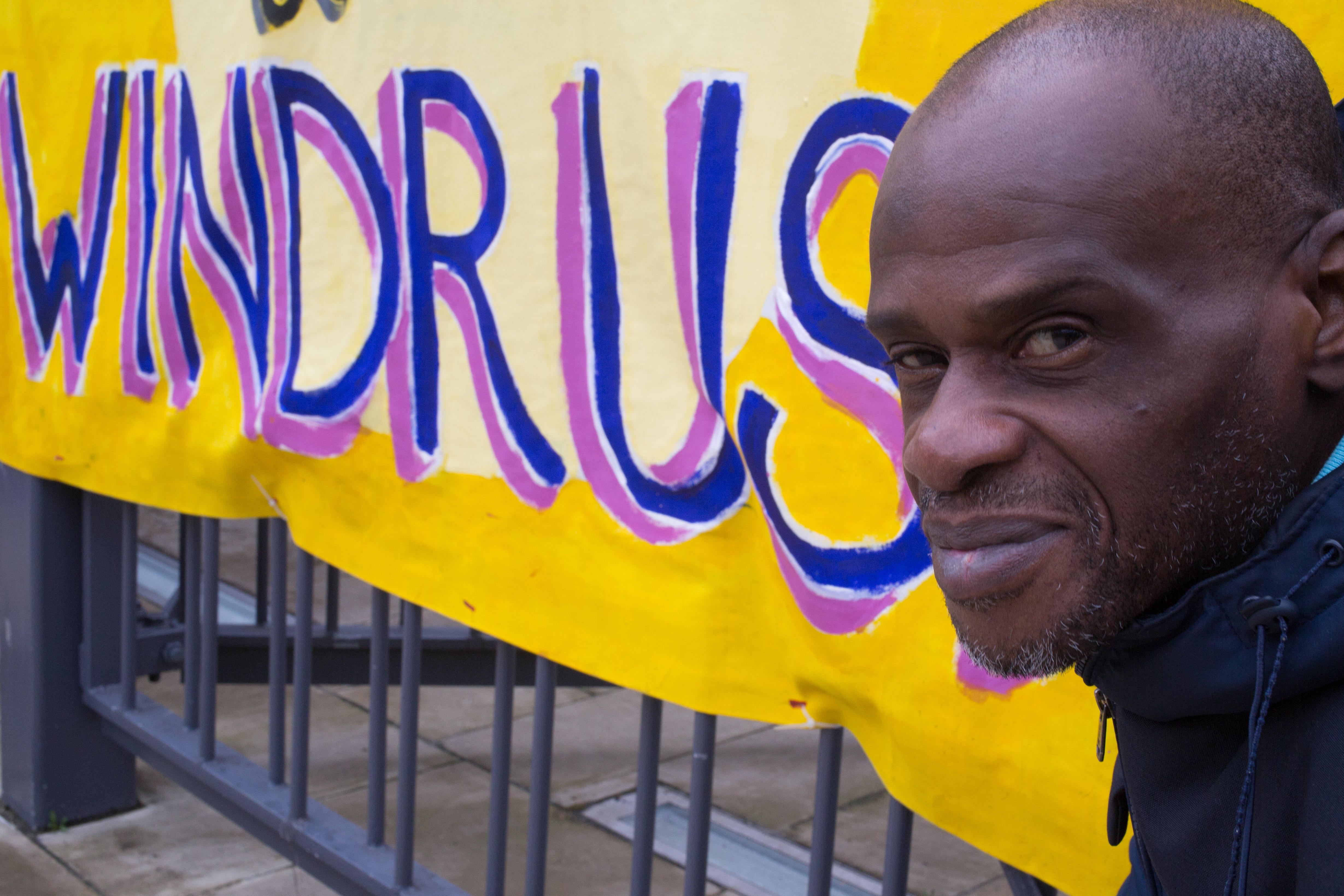
Your support helps us to tell the story
From reproductive rights to climate change to Big Tech, The Independent is on the ground when the story is developing. Whether it's investigating the financials of Elon Musk's pro-Trump PAC or producing our latest documentary, 'The A Word', which shines a light on the American women fighting for reproductive rights, we know how important it is to parse out the facts from the messaging.
At such a critical moment in US history, we need reporters on the ground. Your donation allows us to keep sending journalists to speak to both sides of the story.
The Independent is trusted by Americans across the entire political spectrum. And unlike many other quality news outlets, we choose not to lock Americans out of our reporting and analysis with paywalls. We believe quality journalism should be available to everyone, paid for by those who can afford it.
Your support makes all the difference.The Equality and Human Rights Commission (EHRC) has today released its report on how the Home Office failed to fulfil its legal duties, which created injustices for a whole generation of British black people.
“The treatment of the Windrush generation as a result of hostile environment policies was a shameful stain on British history,” said Caroline Waters, EHRC interim chair.
As the EHRC report articulates, this stain runs deep in the historical fabric of the Commonwealth. “From 2012, this [hostile environment] agenda accelerated the impact of decades of complex policy and practice based on a history of white and black immigrants being treated differently,” the report states.
Satbir Singh, chief executive of the Joint Council for the Welfare of Immigrants, said “successive home secretaries” had “ignored warnings” from campaigners that hostile environment policies would lead to disastrous ends for some lawful Commonwealth citizens.
The life of one such campaigner, Hubert Howard, ended one year ago this month. Howard’s premature death at the age of 62 occurred after a 13-year battle with the Home Office to validate his nationality. He fought to have his citizenship status, employment, health coverage, and bank account restored. He was plunged into debt, subsisting on the support of only family and friends. Then came a diagnosis of leukaemia, after which his health and strength declined precipitously. When he finally won his fight with the government for recognition, he lost his battle with cancer three weeks later.
If you Google the name “Hubert Howard”, his story is listed near the Wikipedia page of a more exalted person by the same name, who passed away in 1987 at the more expected age of 80. Comparing the life stories of these two Howards reveals interwoven histories of empire and entitlement spanning generations that explain why one lived a princely life, and the other died a pauper, bloodstained through and through.
Let's begin with the princely Hubert John Edward Dominic Howard (1907-1987) – he was born outside Great Britain, in Washington DC. His mother was an Italian noblewoman, and his father was Sir Esme William Howard, 1st Baron Howard of Penrith, a career diplomat who later served as Britain’s ambassador to the United States. According to Lord Howard’s biographer, BJC McKercher, the diplomat was “an integral member of the small group of men who made and implemented British foreign policy between 1900 and 1930, a critical transitional period in Britain’s history as a world power”. Thus, even though Hubert was foreign-born, his citizenship was beyond question. It was conveyed to him by order of jus sanguinis, Latin for “right of blood”, the practice in nationality law of granting citizenship to a foreign-born person based on bloodline. With that in mind, let’s refer to this Hubert as “Blood Howard” to differentiate him from the other Hubert Howard.
On Blood Howard’s paternal line there were ties to the colonial administration of Jamaica dating back to an ancestor who joined Oliver Cromwell’s armada that conquered Jamaica from Spain in 1655. Another ancestor became the first speaker of the Jamaican parliament. The family prospered in Jamaica, McKercher states, “until when the end of slavery and the advent of free trade savaged the West Indian sugar industry.” There was still a Jamaican connection by 1907, the year of Blood Howard’s birth, when his diplomat father won praise for mediating a conflict between Jamaica’s colonial governor and an American naval commander dispatched to the island to quell “a mutiny amongst black prisoners in a local penitentiary”, who, incidentally, Lord Howard referred to in his memos as “darkies”.
Fifty years after that suppression, the second Hubert Howard was born in Jamaica. His status at birth, as defined by the British Nationality Act of 1948, was CUKC, standing for “Citizen of the United Kingdom and Colonies”. This applied the principle of jus soli, meaning “right of soil”, the entitlement of any person born in a territory to the nationality of that territory. Let’s, therefore, call this Hubert “Birthright Howard”. He arrived in London in 1960 at the age of three. As was the case for several other Britons fated to be ensnared in the Windrush scandal, Birthright Howard was admitted to the UK on his mother’s passport. Printed on one page was that crucial string of letters, “CUKC”.
Birthright Howard’s mother worked in England for over two decades before she retired and moved back to Jamaica in 1982. Howard himself, by then a 25-year-old man walking and talking in the ways of the Hackney community that was the only home he’d ever known, remained. He held down gainful employment as a maintenance worker for British Rail and a caretaker for the Peabody Trust. He was, in today’s parlance, an essential worker.
But in 2005, his employers began asking him to produce proof of his citizenship. That was the first rumbling that alerted Birthright Howard to the earthquake that lay ahead. Since his arrival in England, there hadn’t been much disposable cash to take trips abroad. So, he’d never left the country. When his mother fell critically ill in 2006, he applied for a British passport to go and see her. It was denied. And then the walls of his life caved in.
Blood Howard, on the other hand, had “returned” to England into the open arms of the aristocracy. He was educated at Cambridge, then served as an intelligence officer in the Second World War. The middle child of five boys, he seems to have been a bit of an introvert, happiest when in the serenity of the outdoors. Today, he is best remembered for the years of devoted landscaping he sank into Ninfa, a bucolic estate in Italy that was the inheritance of his Italian wife. Now open to the general public, the Financial Times described it as “the most romantic garden in the world” and “just the place for a midweek gloat over the indoor working class”.
Birthright Howard, also mild-mannered and soft-spoken, was, by contrast, unable to hold on to his flat in Hackney. “I’ve got responsibilities,” he told the Hackney Gazette in 2012, then firmly in the grip of the newly implemented Hostile Environment policy. “I live with my dad, who’s 86, and my 14-year-old half-brother, but now I’ve lost my job. I’ve got no funds, but of course I can’t sign on because technically I’m an illegal immigrant.”
Hackney Downs ward councillor Michael Desmond worked to help his constituent. In paying him tribute at the time of his passing a year ago, Desmond turned to literature. “We have lost a warm, engaging man who was faced with a Kafkaesque nightmare, which was a disgrace to the country and shamed our government,” he said.
There is another literary reference that fits: Howards End. In this novel by EM Forster first published in 1910, the lives of a web of characters belonging to three families of differing fortunes revolve around the inheritance of a homestead called Howards End. It involves stolen rights, advantages taken, secrets kept, and poetic injustice. In a memorable passage, one of the characters speaks these potent words:
“Then, because my life is great and theirs is little, I know of things they can’t know of, and so do you. We know that there’s poetry. We know that there’s death. They can only take them on hearsay. We know this is our house, because it feels ours. Oh, they may take the title-deeds and the door-keys, but for this one night, we are home.”
Nicholas Boston is associate professor of media studies at the City University of New York, Lehman College
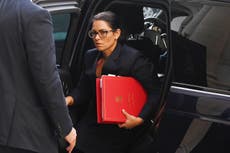
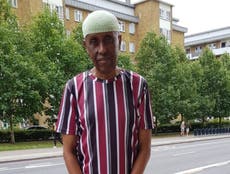
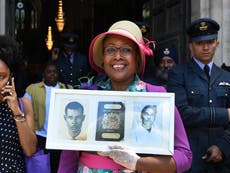
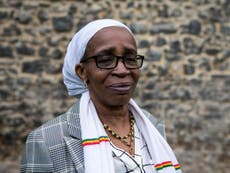
Join our commenting forum
Join thought-provoking conversations, follow other Independent readers and see their replies
Comments